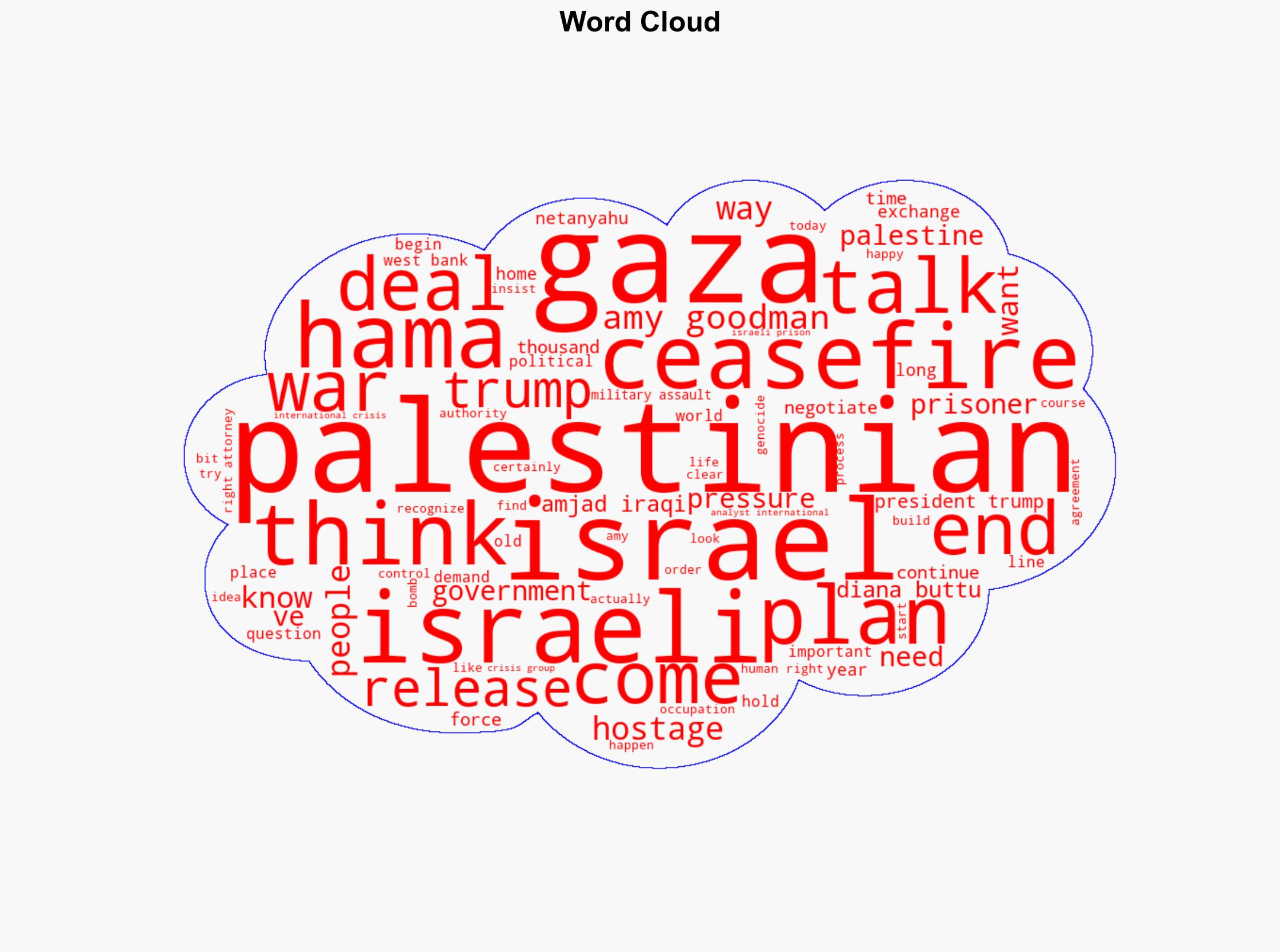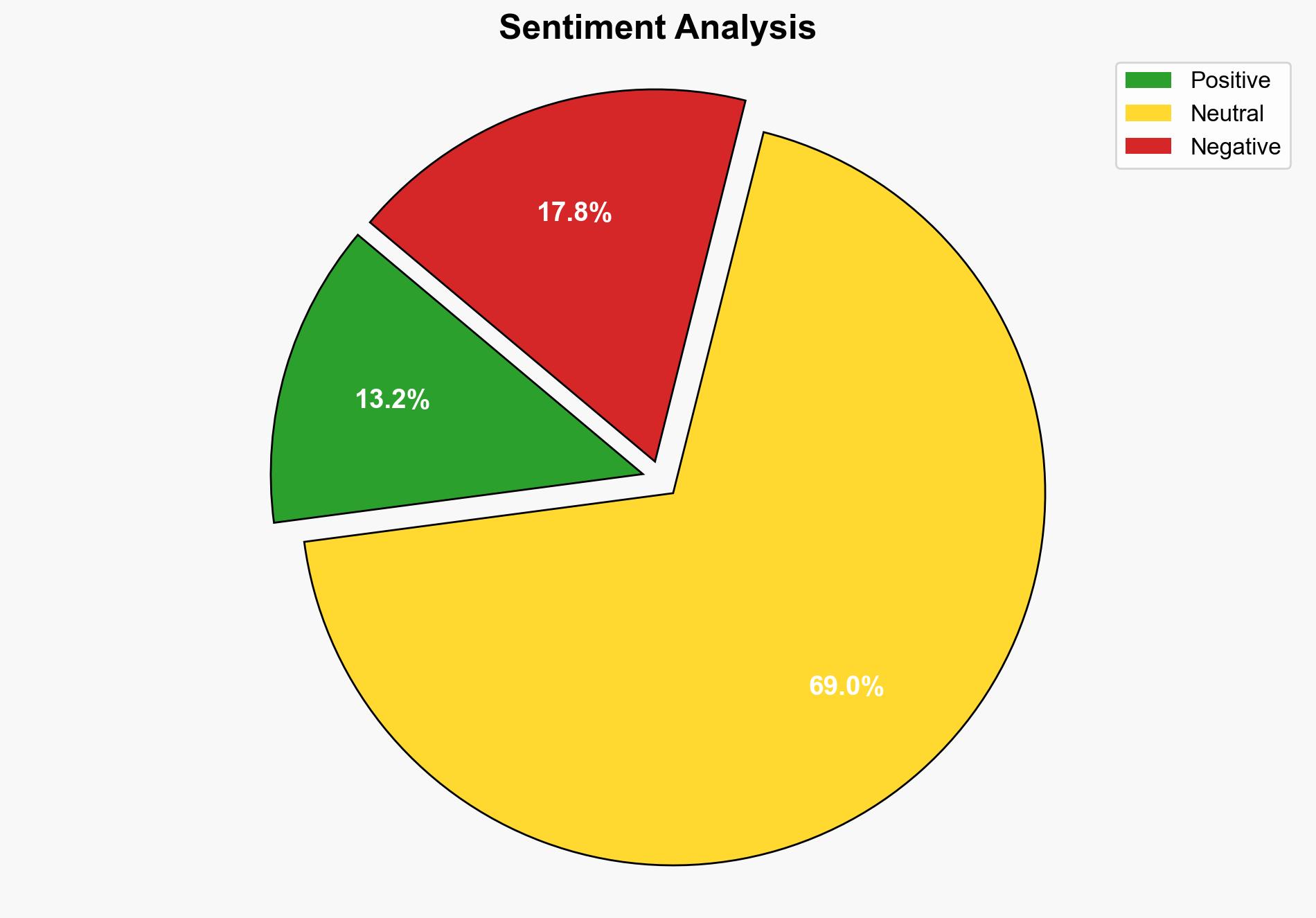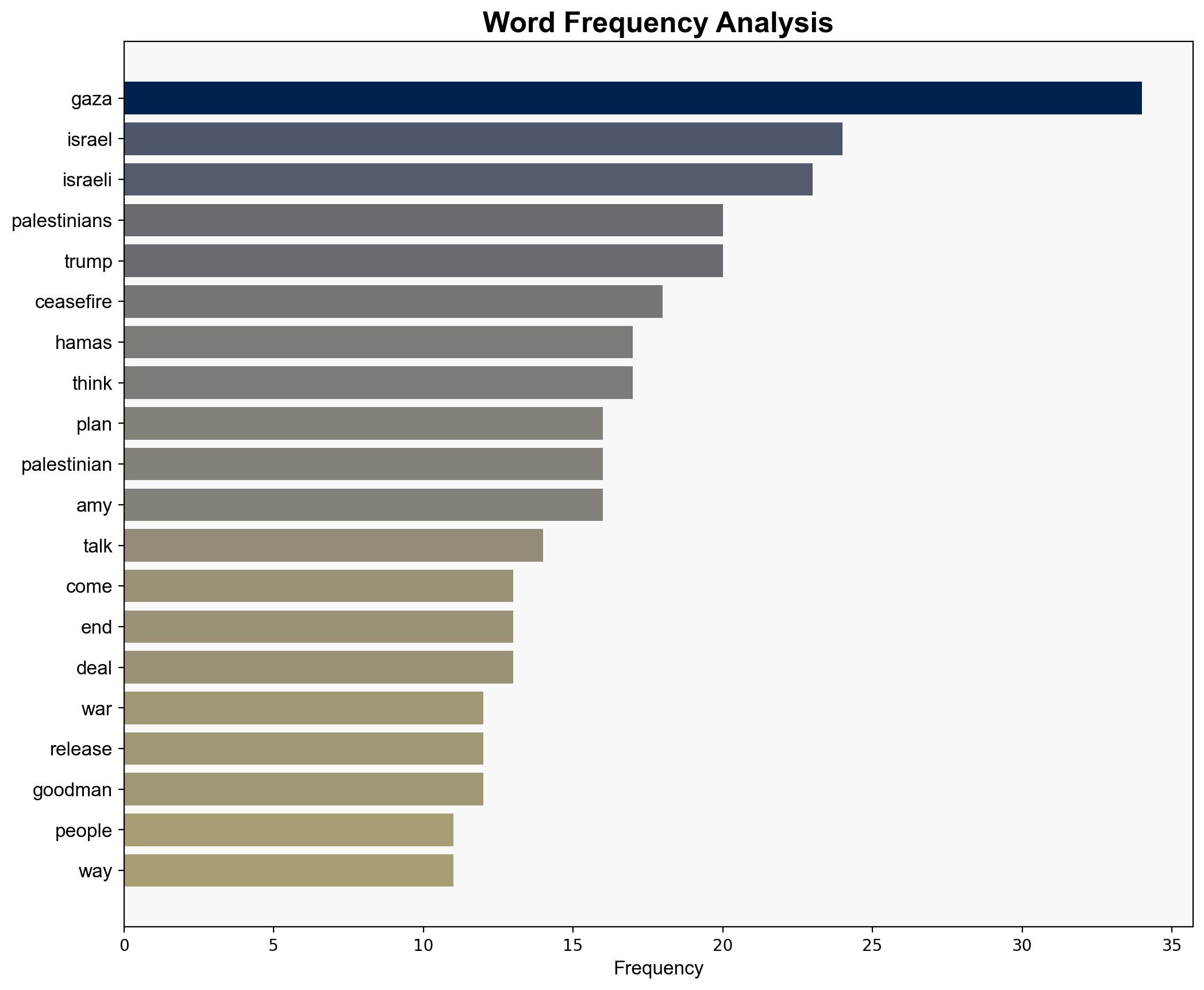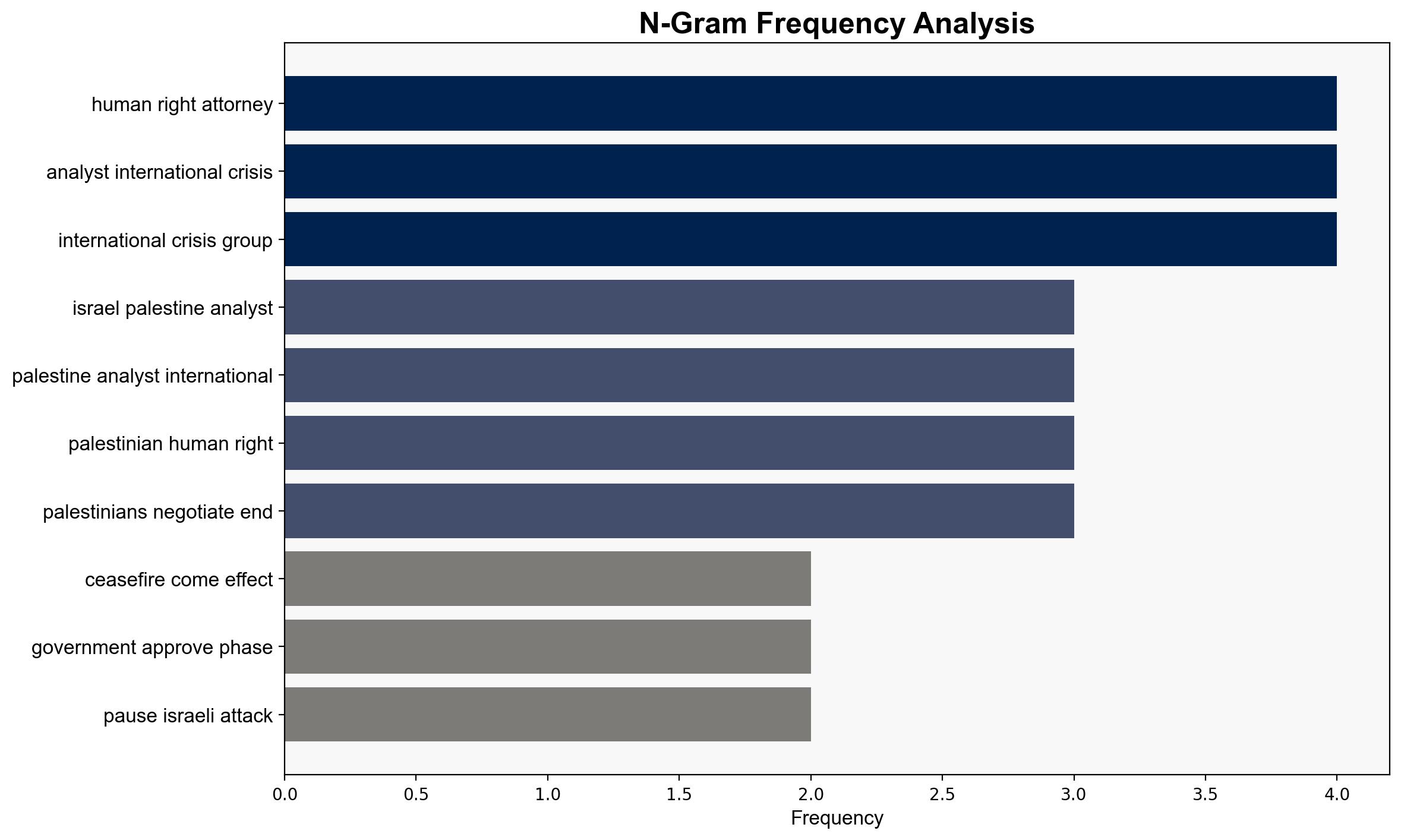After Gaza Ceasefire Massive Political Pressure Needed to Prevent Israel from Restarting the War – Democracy Now!
Published on: 2025-10-10
Intelligence Report: After Gaza Ceasefire Massive Political Pressure Needed to Prevent Israel from Restarting the War – Democracy Now!
1. BLUF (Bottom Line Up Front)
The most supported hypothesis is that the ceasefire agreement between Israel and Hamas is fragile and requires significant international diplomatic efforts to ensure its sustainability. The confidence level in this assessment is moderate due to the complex and volatile nature of the region. Recommended action includes increased diplomatic engagement by international stakeholders to monitor and support the ceasefire terms, preventing potential escalation.
2. Competing Hypotheses
1. **Hypothesis A**: The ceasefire will hold due to mutual exhaustion and international pressure, leading to a longer-term de-escalation in the region.
– **Supporting Evidence**: The ceasefire includes provisions for humanitarian aid and prisoner exchanges, which may incentivize both parties to maintain peace. International actors, including the United States, have shown interest in stabilizing the region.
2. **Hypothesis B**: The ceasefire is temporary, and hostilities will likely resume due to unresolved underlying tensions and lack of trust between the parties.
– **Supporting Evidence**: Historical patterns of ceasefire breakdowns in the region, ongoing military presence, and political rhetoric from leaders like Benjamin Netanyahu suggest a lack of commitment to long-term peace.
Using ACH 2.0, Hypothesis B is better supported due to the historical context and current political dynamics indicating a high risk of renewed conflict.
3. Key Assumptions and Red Flags
– **Assumptions**:
– Both parties are genuinely interested in peace and will adhere to the ceasefire terms.
– International pressure will be sufficient to deter renewed hostilities.
– **Red Flags**:
– Continued military presence and rhetoric from Israeli leadership suggesting potential for resumed conflict.
– Lack of concrete measures for long-term political solutions addressing core issues like territorial disputes and political prisoner releases.
– **Blind Spots**:
– Potential internal political pressures within Israel and Palestine that may influence decision-making.
– Influence of external actors not fully accounted for in the current analysis.
4. Implications and Strategic Risks
– **Geopolitical**: A breakdown in the ceasefire could lead to regional instability, drawing in neighboring countries and affecting global diplomatic relations.
– **Economic**: Prolonged conflict may disrupt economic activities in the region, affecting trade and humanitarian aid distribution.
– **Psychological**: Continued uncertainty and violence could exacerbate humanitarian crises and foster radicalization.
– **Cyber**: Potential for cyber operations targeting critical infrastructure as a form of asymmetric warfare.
5. Recommendations and Outlook
- Enhance diplomatic efforts by engaging regional and international actors to support and monitor the ceasefire.
- Facilitate dialogue between Israeli and Palestinian leaders to address underlying issues and build trust.
- Scenario Projections:
– **Best Case**: Sustained ceasefire leading to comprehensive peace talks.
– **Worst Case**: Immediate resumption of hostilities with regional spillover.
– **Most Likely**: Periodic skirmishes with intermittent ceasefire violations.
6. Key Individuals and Entities
– Benjamin Netanyahu
– Khalil al-Hayya
– Marwan Barghouti
– Donald Trump
– Diana Buttu
– Amjad Iraqi
7. Thematic Tags
national security threats, regional focus, conflict resolution, international diplomacy




